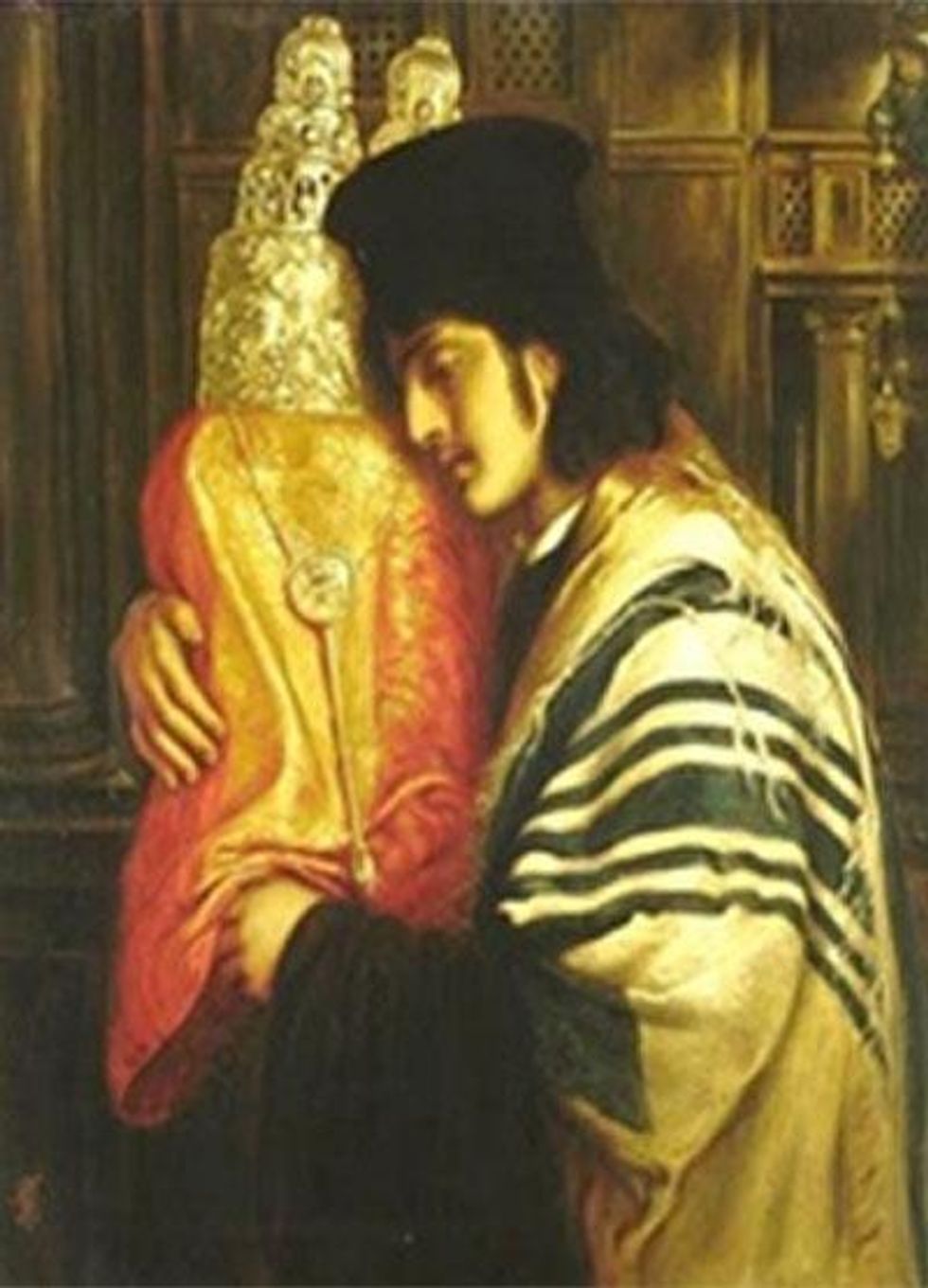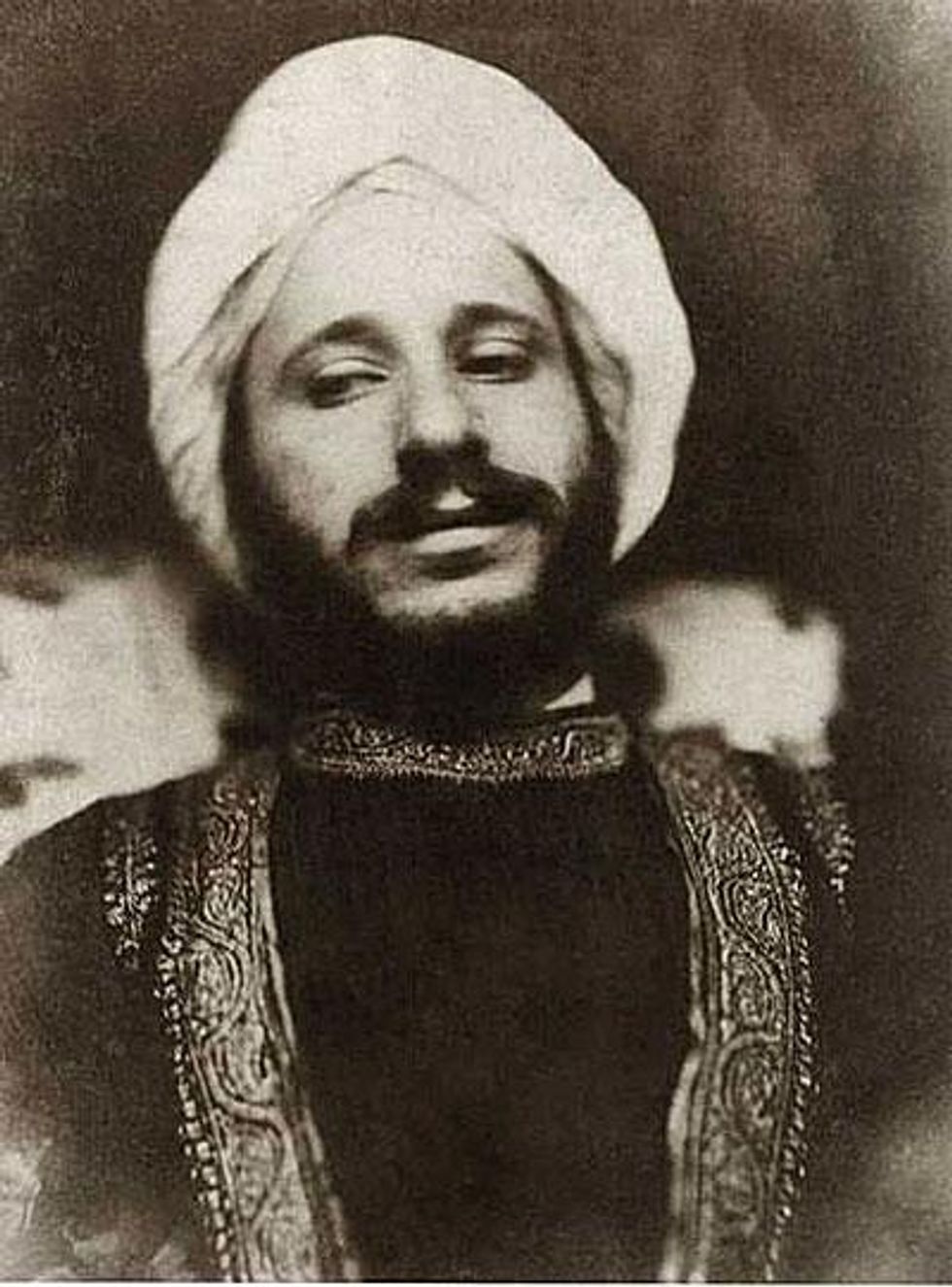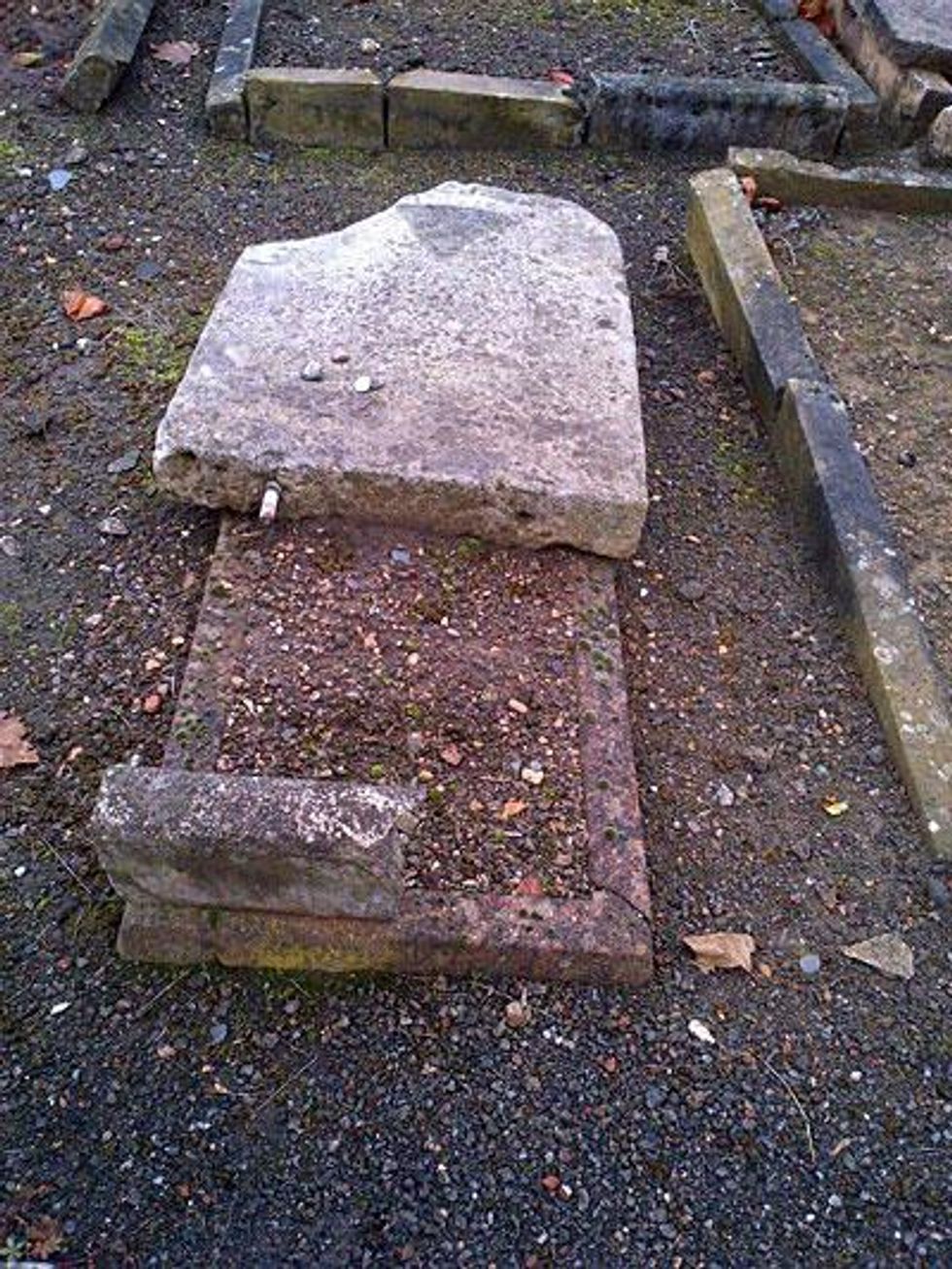
Simeon Solomon's brilliant career was over after his first arrest for homosexual acts. His reputation is now being rehabilitated along with his grave site.
February 24 2014 4:00 AM EST
By continuing to use our site, you agree to our Privacy Policy and Terms of Use.

Alternative memorial artist Joss Nankoo was commisioned to create a new memorial for the grave site of gay pre-Raphaelite artist Simeon Solomon, whose reputation had fallen into disrepute. He was interested in Solomon's story and passed along the information for the article below by Frank Vigon. -- The Editors

At left is the picture that has become most familiar to the Jewish world. It figures on numerous greeting cards found in Judaica shops all over the world. But if you asked anyone who the artist was who painted this picture of the rabbi lovingly holding the Torah scrolls, most would shrug their shoulders saying they were sorry that they didn't know.
Solomon was born into a family of artists in London in 1840. His father was the second Jew to be made freeman of London, and his mother was an artist, as were two of his siblings, his brother Abraham and his sister Rebecca. From an early age he showed clear artistic talent, sketching many images from Jewish culture and Jewish biblical themes.
At right: Simeon Solomon by David Wilkie Wynfield
His skills were acknowledged by the group, which included Holman Hunt, John Everett Millais, Dante Gabriel Rossetti, and Edward Burne-Jones. By far the youngest of the group, he was nevertheless popular in Victorian England.
His work moved through a number of phases, mythological, classical, and symbolist. He was very much at the center of the Pre-Raphaelite group, so much so that Burne-Jones said of him, "Solomon was the greatest artist of us all." He experimented with several styles, and in his work can be seen glimpses of expression and style that were to be made famous by artists such as Lord Frederic Leighton, Lawrence Alma-Tadema, Aubrey Beardsley, Gustav Klimt, and even Marc Chagall. He was a "shape-shifter," and at the height of his fame reproductions of his works were to be found in many Victorian homes.
But his is a tragic story. He becomes acquainted with the poet Algernon Charles Swinburne, whose hedonistic and scandalous lifestyle led him astray. In the hothouse of the avant-garde circles in which he moves, Solomon finds himself on the margins of society both as a Jew and a homosexual. A significant body of his work is often seen as having homoerotic undertones; some of his less supportive critics hint heavily at this. Nevertheless, his success as an artist compensates for the two potential causes of exclusion. Solomon's work continues to be exhibited and praised until 1873.
Above: Dawn
In that year Solomon is arrested with another man in a public toilet off Oxford Street, prosecuted, and found guilty. The scandal destroys his reputation, his career and his personality. The vast majority of his friends and associates drop him. The galleries that have exhibited his work every year since he was 18 refuse to show his work. At the age of 33 he drifts into poverty and alcoholism and becomes an outcast. He continues to work and still produces some very fine pieces, including some excellent portraits, some work on Christian themes, and a significant number of symbolist paintings.
He drifts in and out of St. Giles workhouse, where he continues to paint, but his output is unreliable due to his bouts of alcoholism. He spends the rest of his life in a downward spiral, still producing work but shunned. He dies in St. Giles workhouse in 1905. The tragedy is that he was such a gifted and talented artist whose craft both as an artist and poet ought to have earned him a more prominent place within the Pre-Raphaelite group. The writer Arthur Symons in 1906, a year after Solomon's death, was quite clear that if Solomon had not been arrested, he would have rivaled Burne-Jones.
This is one of our most significant Jewish painters. His work deserves a reappraisal and certainly his memory deserves honouring. His work on Jewish themes goes seen but unacknowledged in many Jewish publications. His later work as a mainstream artist ought to be celebrated as the work of an artist who origins are strongly Jewish and who made a major impact on 19th-century art. The Art Journal of 1868 wrote of him "Unmistakeable genius, only run a little mad."

On honoring the dead, a Chabad site says the following: "Care for the grave site: Make sure it does not become overgrown with weeds or fall into disrepair." I believe the Jewish community as whole ought to perform this mitzvah to mark the grave of one of our major Jewish painters.
Above: Joss Nankoo creates the new monument.
The current goal is to raise PS50,000 to find a Ph.D. scholarship in Simeon Solomon's name.
I can be contacted via frank.vigon@gmail.com for further information and to arrange contributions.
Click through for a selection of Solomon's work >>>
Allegorical Self-Portrait, 1873
Autumn
Love Dreaming by the Sea
Sappho and Erinna in a Garden at Mytilene, 1864
Bacchus
Frontispiece of A Vision of Love Revealed in Sleep
Shadrach, Meshach, and Abednego, 1863
Toilette of a Roman Lady, 1869
Charlie Kirk DID say stoning gay people was the 'perfect law' — and these other heinous quotes